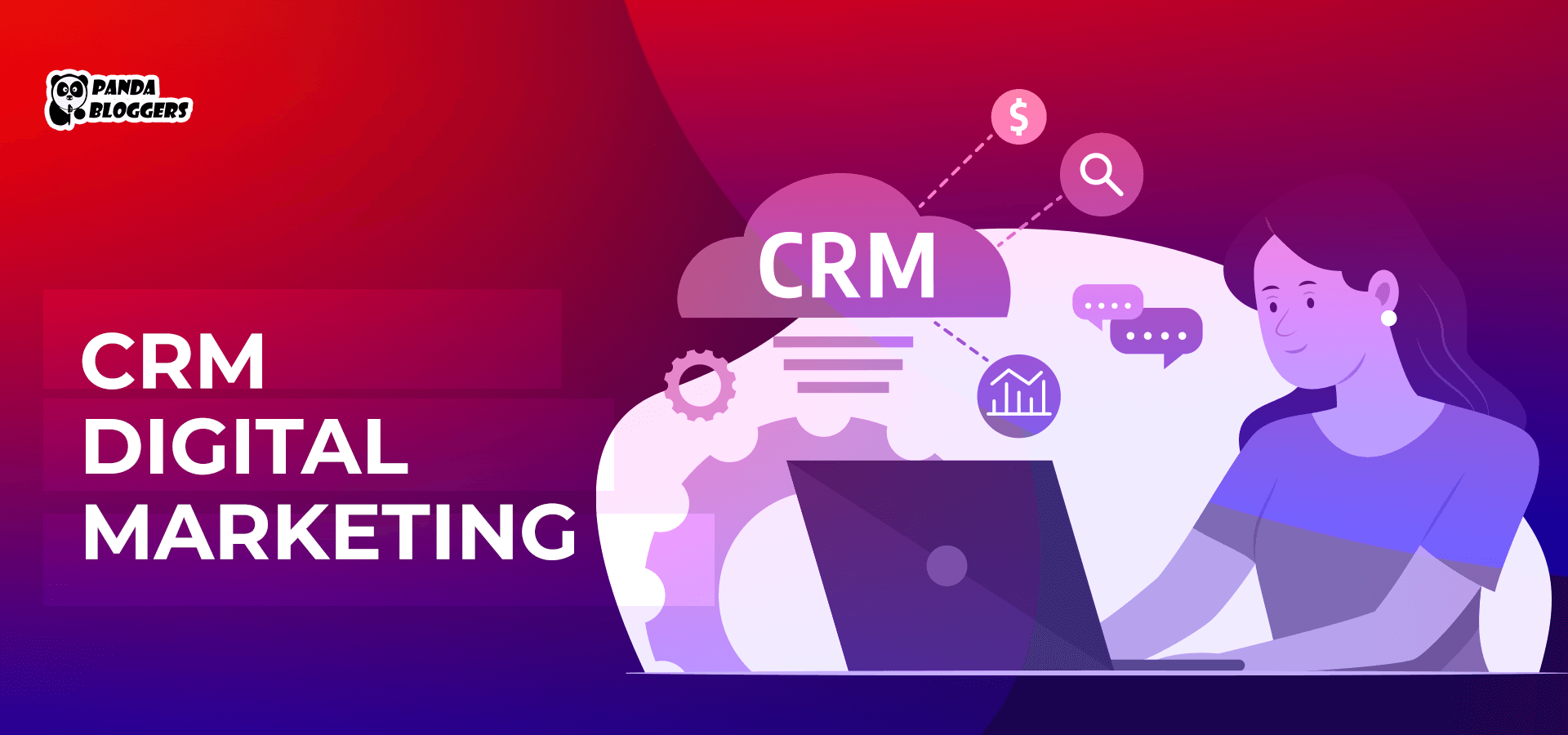 CRM Digital Marketing
CRM Digital Marketing
Modern enterprises boost multifunctional digital marketing campaigns by combining human and machine intelligence. In addition to hiring skilled marketers, they implement marketing automation tools powered by artificial intelligence (AI) and machine learning (ML) technologies.
However, marketers and marketing automation tools cannot run digital marketing campaigns successfully without leveraging big data. They must access and analyze customer data collected from various sources to identify high-quality leads, deliver tailored content, drive engagement, and enhance customer journeys.
As integrated enterprise software, customer relationship management (CRM) systems enable marketers and marketing platforms to access, track, and analyze information about existing and potential customers. In addition to storing customer data collected from diverse sources in a centralized location, the software tracks customer interactions across channels and touchpoints.
Most companies and startups these days adopt CRM digital marketing to run data-driven multifunctional marketing campaigns. The CRM boosts lead generation, nurturing, and conversion activities by facilitating customer data access and sharing data-driven insights. We can understand the strategy clearly by discussing some important aspects of CRM-driven digital marketing.
Understanding 10 Important Aspects of CRM Digital Marketing
-
Centralized Lead Hub
The primary functionality of a CRM system is to capture contact details of existing and prospective customers. The software automatically captures and updates important customer information like name, location, phone number, email ID, website URL, industry, and budget.
Furthermore, it makes the customer details accessible to the marketing, sales, and customer support team by storing the data in a centralized location. Access to up-to-date customer information helps digital marketers understand, segment, and prioritize leads.
-
Website Traffic Tracking
Enterprises can integrate CRM systems with widely-used web analytics tools like Google Analytics. The integration enables the software to track website visitors and depict their interactions with the website. Digital marketers can access the data effortlessly using the dashboard provided by the software.
Additionally, they can analyze the website traffic using KPIs like time on site, bounce rates, page views, and referral sources. At the same time, they can leverage the data to generate more leads by boosting the website’s user experience.
-
Social Media Monitoring
Digital marketers have the option to integrate the CRM with a brand’s social media profiles. The integration makes the software effective in identifying active followers and tracking their social media interactions with the brand.
Digital marketers can understand brand perception by checking the information posted by customers about products or services. Additionally, they can understand the buying behavior and habits of leads by analyzing the social media data using relevant KPIs.
-
Customer Interaction Recording
In addition to capturing contact details, the CRM software captures ongoing interactions between a customer and a brand. The information helps digital marketers understand a lead’s needs, preferences, and pain points based on purchase history, contact timelines, and sentiment.
Digital marketers can leverage these real-time interactions to divide leads into relevant segments. It becomes easier for them to plan digital marketing activities by understanding a customer, adopting emerging trends, and using the right channels.
-
Customer Journey Tracking
B2B leads cross a series of steps – awareness, evaluation, consideration, and decision – in the buyer’s journey before making purchase decisions. Digital marketers can send targeted and personalized content to the prospect only by knowing his current position in the buying journey.
CRM software helps them track and refine customer journeys by highlighting engagement patterns. Leading CRM systems further represent the journey of a lead across the sales funnel visually. Hence, it becomes easier for marketers to nurture leads based on real-time interactions across touchpoints.
-
Marketing Task Automation
While configuring the CRM software, managers have the option to automate routine and repetitive marketing tasks. For instance, they can use the CRM to generate automated reports by analyzing real-time customer data using the desired metrics.
The automation streamlines the digital marketing process and helps marketers focus on lead nurturing activities. Also, an organization can curtail human resource costs significantly by implementing CRM systems with built-in marketing automation tools.
-
Marketing Tool Integration
Cloud-based CRM solutions can be integrated with commonly used marketing automation tools using application programming interfaces (APIs). The integration facilitates seamless customer data exchange between the CRM and other marketing tools.
In addition to automating important marketing tasks, the unified tools help digital marketers access more accurate data, collaborate with salespeople, improve customer experiences, and leverage data analytics tools.
-
Data-Driven Insights
New-age CRM systems come with built-in data analytics. The data analytics solution makes the software gain and share actionable insights by analyzing large volumes of customer data automatically. The data-driven insights shared by the enterprise system help digital marketers nurture and convert leads by making informed decisions.
For instance, digital marketers can leverage insights to understand the demographics and behaviors of prospects by creating more realistic buyer personas. Likewise, the data helps them build relationships and nurture leads by sending personalized messages through the best-suited channel.
-
Campaign Performance Improvement
Enterprises switch from conventional marketing to CRM digital marketing to boost multichannel digital marketing campaigns successfully. The CRM system boosts digital marketing campaign performance in several ways. It helps digital marketers share relevant content and messages with leads by dividing them into specific segments like existing customers, potential customers, and inactive subscribers.
The personal customer information shared by the software makes it easier for digital marketers to personalize marketing messages and choose the delivery channel. At the same time, digital marketers can understand what is working and what is not by evaluating digital marketing data using various marketing and sales metrics.
-
Customer Relationship Building
A CRM system helps enterprises strengthen customer relationships by personalizing communication and boosting experiences. The strong relationships make it easier for them to improve customer engagement, sustain customer relationships, and foster customer loyalty.
Digital marketers can leverage strong customer relationships to boost revenue through cross-selling and up-selling activities. They can cross-sell or up-sell products/services by sending targeted emails and displaying relevant ads when customers interact with the brand.
Conclusion
While discussing CRM digital marketing, we should remember that each enterprise these days has the option to implement strategic, analytics, collaborative, or operational customer relationship tools. Also, it can combine the CRM system with other marketing automation tools using application programming interfaces (APIs).
The integration options help enterprises ensure seamless and uninterrupted data exchange between the CRM and marketing automation tools. At the same time, the integration makes it easier for decision-makers to detect and resolve issues impacting the performance of individual digital marketing campaigns without any delays.








Leave a Reply